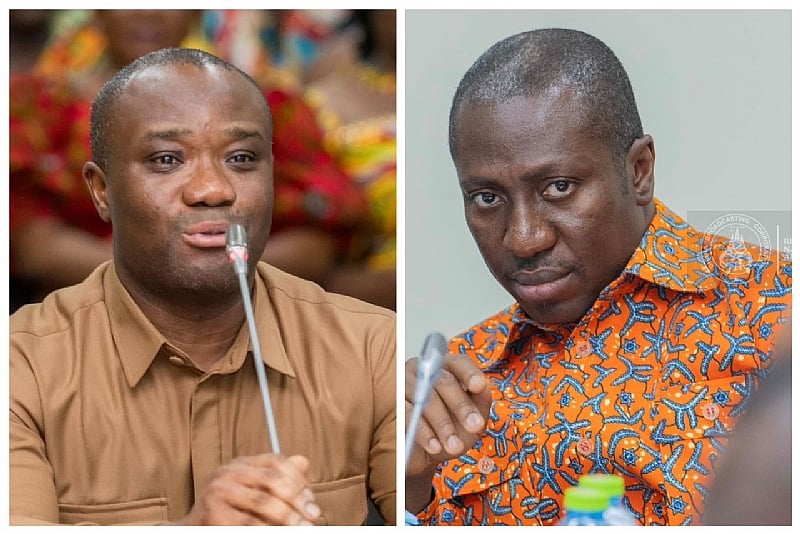The political landscape in Ghana has been stirred by the recent appointment of Dr. Johnson Asiamah as the Governor of the Bank of Ghana (BoG) by President John Mahama. The appointment, while welcomed by some, has drawn criticism from the opposition, particularly from Alexander Afenyo-Markin, the Minority Leader in Parliament. Afenyo-Markin’s contention centers on the fact that Dr. Asiamah assumed his duties before receiving the constitutionally mandated approval from the Council of State, a body yet to be constituted. This preemptive action, according to Afenyo-Markin, constitutes a breach of protocol and raises concerns about the adherence to due process. He has called for the suspension of Dr. Asiamah’s engagement until the Council of State is formed and provides its endorsement.
Responding to the criticism, Felix Kwakye Ofosu, spokesperson for President Mahama, has challenged Afenyo-Markin’s stance, labeling it as inconsistent and highlighting a perceived double standard. Kwakye Ofosu points to a similar appointment made by President Nana Akufo-Addo in 2017, where Ms. Irene Naa Torshie Addo was appointed as Administrator of the District Assemblies Common Fund before consultation with the then yet-to-be-formed Council of State. This precedent, argues Kwakye Ofosu, demonstrates that the current administration is merely following a previously established practice and that Afenyo-Markin’s objections are therefore unfounded. The crux of Kwakye Ofosu’s argument hinges on the principle of consistency, implying that if the previous administration’s actions were acceptable, then the current administration’s actions should be viewed similarly.
The debate surrounding Dr. Asiamah’s appointment underscores the importance of adhering to constitutional processes and highlights the potential for political maneuvering within such frameworks. Afenyo-Markin’s concern, while grounded in constitutional procedure, could be perceived as politically motivated, given the lack of similar outcry during the 2017 appointment. Conversely, Kwakye Ofosu’s defense, while pointing to a historical precedent, could be seen as deflecting criticism rather than addressing the core issue of bypassing established procedures. The differing interpretations of the situation reflect the partisan divide and the potential for using procedural matters as political leverage.
The situation raises several critical questions. Firstly, it brings into focus the interpretation and application of constitutional provisions regarding appointments. While the constitution mandates consultation with the Council of State, the timing and specifics of this consultation are open to interpretation. The debate highlights the grey areas within the constitutional framework and the need for clearer guidelines to avoid future ambiguities. Secondly, the episode underlines the importance of consistency in applying constitutional principles. Selective enforcement of rules based on political affiliation can erode public trust and weaken the integrity of the governing process.
Beyond the immediate implications of Dr. Asiamah’s appointment, the debate has broader implications for Ghana’s political landscape. It reveals the ongoing tension between the executive and legislative branches of government and the potential for political maneuvering to influence appointments and policy decisions. Furthermore, the public discourse surrounding this issue underscores the increasing awareness of citizens regarding constitutional processes and their expectations of accountable governance. The debate serves as a reminder of the delicate balance of power and the importance of upholding constitutional principles to maintain the integrity of the political system.
In conclusion, the controversy surrounding Dr. Asiamah’s appointment is not merely a procedural matter but a reflection of the larger political dynamics at play in Ghana. It highlights the importance of clear constitutional guidelines, consistent application of rules, and the need for open and transparent processes in appointments to key positions. The debate ultimately serves as a reminder of the fragility of democratic institutions and the constant vigilance required to uphold the principles of good governance. The ongoing discourse will likely shape future interpretations of constitutional provisions related to appointments and influence the relationship between the executive and legislative branches of government. Ultimately, the resolution of this issue will set a precedent for future appointments and contribute to the ongoing evolution of Ghana’s political landscape.


